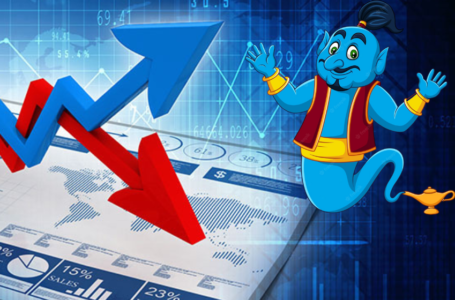Australia’s Migration Reset: Seven MEGA changes from July 2025
Beyond GDP: Why We Need a More Nuanced Measure of Growth and Prosperity

For decades, Gross Domestic Product (GDP) has stood as the ultimate measure of a country’s economic performance. Nations wear high GDP figures like a badge of honour, pointing to them as an indicator of prosperity and well-being. However, the narrow focus on GDP overlooks essential aspects of societal progress and masks disparities that are critical to a holistic understanding of development. Here’s why GDP is an insufficient measure of growth and prosperity.
Unveiling the GDP Illusion
At its core, GDP calculates the market value of all final goods and services produced within a country in a given period. But this quantitative approach lacks the subtlety to capture the qualitative aspects of growth and well-being. Here are some key areas where GDP falls short:
Social Inequality
GDP makes no distinction between income brackets and how wealth is distributed among populations. A nation with a high GDP may also have high levels of inequality, with wealth concentrated in a small elite class, thereby rendering the GDP figure misleading when evaluating overall prosperity.
Environmental Costs
The conventional GDP model tends to ignore environmental degradation. For instance, chopping down a forest for timber would add to the GDP but significantly harm the ecosystem. GDP counts the output but neglects the long-term cost of environmental depletion, which will invariably affect future generations.
Unpaid Labour
Much of the work that contributes to societal well-being, like caregiving and household chores, is unpaid and, thus, not counted in GDP figures. This undervaluation affects policy decisions, as these contributions often go unnoticed despite being crucial to the fabric of society.
The Happiness Factor
GDP doesn’t account for the emotional and psychological well-being of a population. Countries with high GDPs may still rank low on happiness indices due to factors such as work-life imbalance, inadequate healthcare, or social unrest.
Intangibles and Quality of Life
Technological advancement, social cohesion, and cultural values are intangible factors that profoundly affect the quality of life but are not captured by GDP. These elements contribute to the social capital that is essential for comprehensive development.
Alternatives to GDP
Recognising these limitations, some nations and organisations are pushing for alternative measures. The Human Development Index (HDI), for example, incorporates education and life expectancy alongside income. Bhutan’s Gross National Happiness Index is another innovative measure that considers spiritual, physical, and mental well-being.
While GDP is an important economic indicator, it is far from a perfect measure of growth and prosperity. As society evolves, our understanding of progress must also adapt. It’s time to develop a multi-faceted approach to measuring success, one that captures the intricate balance of economic, social, and environmental factors that truly constitute development.





